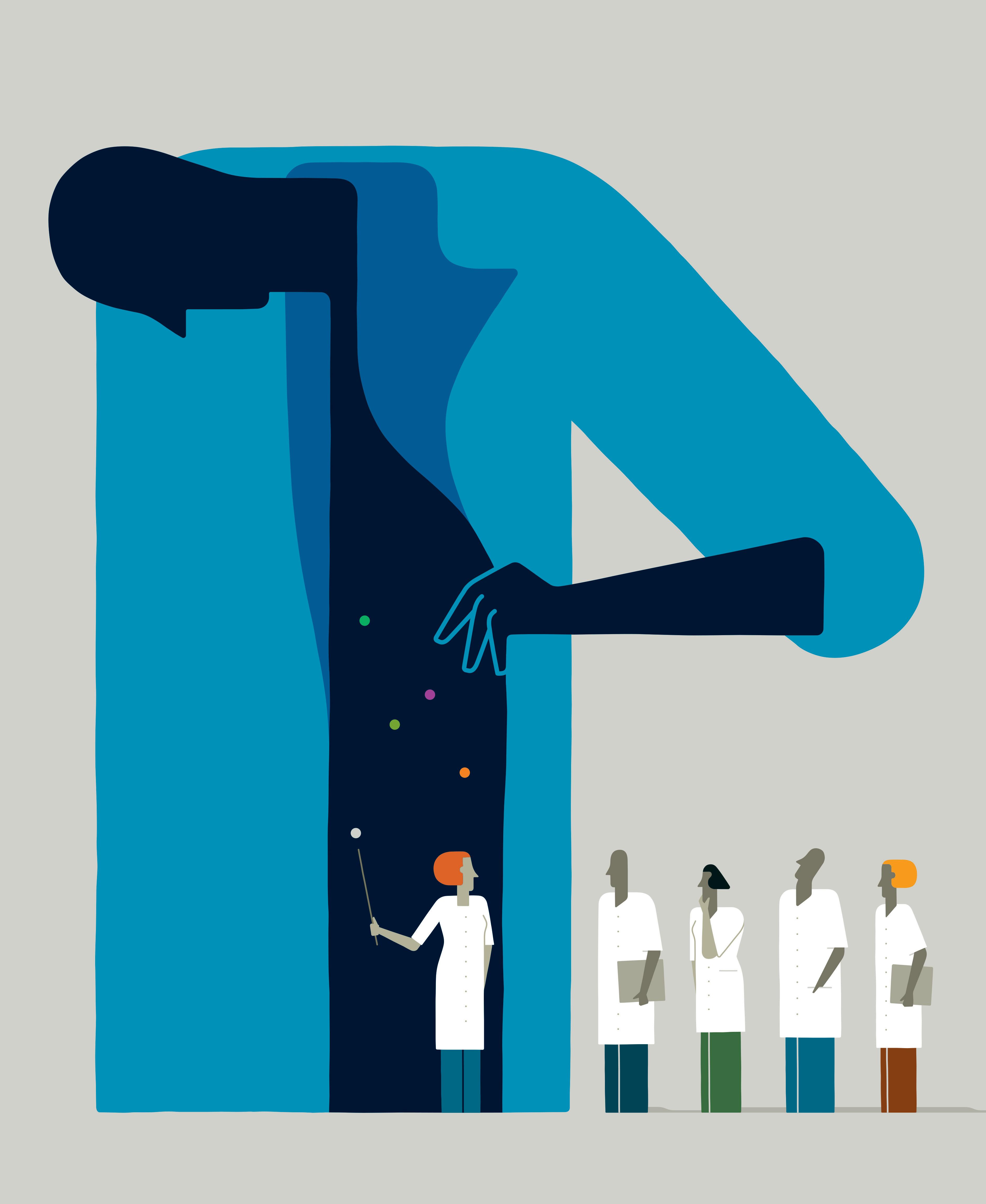
3 minute read
PHYSICIAN TRAINING
A patient who receives a cancer diagnosis needs a skilled oncologist to guide treatment. Someone facing an open-heart operation seeks an accomplished cardiovascular surgeon, while a person with a debilitating digestive disorder calls for a talented gastroenterologist to find the root of the problem. In all those cases, patients need a specialist — a physician who completed a fellowship that provides advanced specialty training for specific conditions. Prestigious fellowship programs cultivate the brightest young medical talent while also building unparalleled expertise, allowing academic medical centers like Houston Methodist to provide innovative specialty care not available elsewhere. “Fellowship programs bring to Houston Methodist the best physicians, those who want to become academic and clinical leaders,” says Dr. H. Dirk Sostman, the Ernest Cockrell, Jr. Presidential Distinguished Chair, president of the Academic Institute and chief academic officer at Houston Methodist. “However, graduate medical training is costly, and fellowships especially so.”
In 2021, the generosity of an anonymous benefactor helped make it possible to expand these vital highly specialized physician training programs at Houston Methodist. This gift, establishing the Leading Medicine Academic Fellows Program, created four new fellowship positions in three programs — two in gastroenterology, one in hematology-oncology and one in neurological spine surgery. The gift brings Houston Methodist closer to its goal of having 50 additional fellowship positions by 2030, Dr. Sostman says. As president of the Houston Methodist Academic Institute, he oversees the hospital’s research and graduate education programs. Fellowships are highly competitive, with the best of the best vying for these coveted slots, according to Dr. Timothy B. Boone, the Craig C. Brown and Suzanne H. Smith Centennial Chair in Medical Education at Houston Methodist. As director of the Education Institute within the Houston Methodist Academic Institute, Dr. Boone leads the hospital’s residency and fellowship programs. Many of these future medical leaders who complete their fellowships at Houston Methodist ultimately stay in the Houston area, Dr. Boone says, either by joining the Houston Methodist faculty or in private practice. Those who move elsewhere become invaluable ambassadors for Houston Methodist, boosting the hospital’s reputation in elite medical circles nationwide. “Graduating outstanding fellows is more effective than any marketing or advertising we can do,” Dr. Boone says. “They speak highly of Houston Methodist wherever they go.” After completing four years of medical school, a new doctor will complete three to seven years in a residency program learning and practicing in a chosen specialty. Many begin their own practices after residency, but others pursue additional specialty training through a fellowship program that ranges from one to three years. In a fellowship, physicians hone their skills and deepen their knowledge in a subspecialty of their field by practicing and studying under distinguished clinicians and scientists. Through clinical rotations and scholarly activity,
they tackle the most complex cases, utilize the latest techniques and publish peer-reviewed research that can lead to better treatments. With the rising demand for high-quality specialty care, residency and fellowship program directors across the country look to expand their programs. Philanthropic support, like this gift from the anonymous donor, will be key in helping Houston Methodist keep pace with the community’s — and the world’s — evolving health care needs, as well as Houston Methodist’s ability to attract additional brilliance into the Houston area, Dr. Boone says. While at Houston Methodist, fellows enhance the quality of care. As a urology faculty member who has mentored fellows for 20 years, Dr. Boone appreciates their commitment to excellence as they work together with hospital faculty to treat patients and train residents. “It is not only an honor to teach them, but they also make you better as a physician,” Dr. Boone says. “They’ve made me better.”










